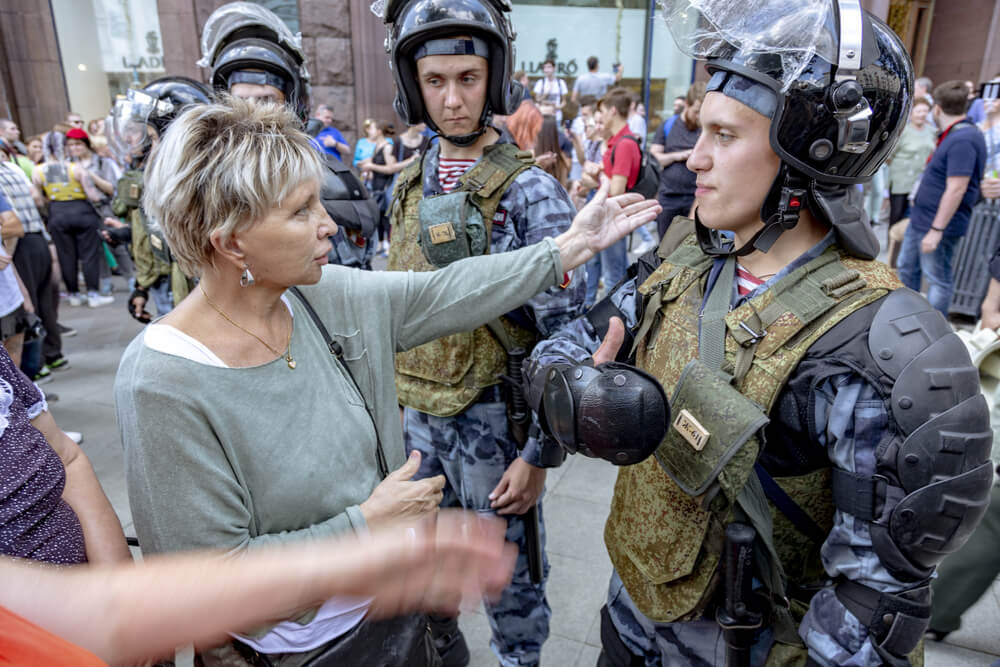An old Soviet approach to foreign affairs, laid down by former Foreign Minister Anatoly Gromyko, says: Ask for the unthinkable, and you will get more than you bargained for.
Vladimir Putin, assuming he is a profound follower of Soviet ideology and the anti-Western narrative, went even further, and now his motto is: Promise the West unimaginable consequences, and the West will crumble, concede, and surrender.
Putin has come to the conclusion that the West wants to compromise regarding Ukraine, and he can therefore set the conditions he wants and then wait to see what concessions the West is prepared to make.
According to Vladimir Putin, the West believes that things can return to normal. He estimates that the political polarisation in the West is significant enough, and Western politicians would rather give in to him than tell their voters that they are in the same danger from Russia as they are from China or Iran.
Instability at home is the only concern
At the beginning of the aggression against Ukraine, Putin realised that he had underestimated the risk of this action, but he soon realised that supplying Ukraine with weapons from the West was not enough to ensure its victory.
For him, it is even more important that it has become clear that the West will not take any action within Russia. The only thing Putin is afraid of is uncertainty and instability in Russia. This could alter the elites' mood and cause them to angrily reject the course he took at the start of the attack on Ukraine.
The Russian people are not afraid of poverty, and the Russian elites are no longer afraid of the sanctions
The sanctions are indeed harming Russia, but not to the extent that the attitude of citizens, especially the elites, towards war would change.
The Russian people are not afraid of poverty, and the Russian elites are no longer afraid of the sanctions. The Russian people as a whole are furiously afraid of uncertainty and instability.
Successfully bluffing with a nuclear attack
Two years or so ago, Vladimir Putin got scared and went on the offensive by bluffing. He succeeded back then. The Russian army's collapse in those days would have caused uncertainty, which the Russian people were deeply afraid of.
Fortunately for Putin, he was able to frighten Western leaders with the consequences of nuclear war. Ironically, Western leaders believed that the Russian upper and political classes were all willing to perish in a nuclear flame because of Vladimir Putin’s imperial fantasies.
Vladimir Putin is now convinced that in the days when the West accepted his Gromyko-style bluff, he not only won in Ukraine but also strategically against the West.
Putin realised that he can do anything as long as he can scare the West with the threat of nuclear war
Putin realised that he can do anything as long as he can scare the West with the threat of nuclear war and use the American hostages currently in Russia's custody to influence the political landscape in the United States.
The intimidation brought results. First, by cutting off arms supplies to Ukraine, the West effectively halted the Ukrainian offensive. Then the West started imposing various limitations on where and how Ukrainians could use Western artillery and missiles to strike Russia.
Eventually, European leaders started to repeatedly and publicly claim that they did not want war with Russia and that Western armies would not participate. Vladimir Putin wanted passivist declarations from the West, and he succeeded in obtaining them.
Good-will gestures
Given the current state of affairs, why would Putin stop the war now when he will benefit more tomorrow, and even more the day after tomorrow?
The recent explosion of a senior intelligence officer's car in Moscow has raised concerns, particularly among high-ranking individuals. But it was neutralised very rapidly, because the suspect for planting the explosives was arrested the very next day in Bodrum, Turkey.
 Putin expects Western concessions. His fear stems from domestic uncertainty, unrest, discontent among Moscow's elites, and discontent in Russian regions
Putin expects Western concessions. His fear stems from domestic uncertainty, unrest, discontent among Moscow's elites, and discontent in Russian regions
What is even more unusual is that some Russian media reported rumours that US intelligence played a role in the bombers' discovery and arrest.
If the US really helped in this case, and there has been no reaction yet, it could be a gesture of goodwill, i.e., the kind of behaviour that Putin hopes for and expects. He has plenty to use for blackmail, including American citizens like Evan Gershkovich.
Because he is not afraid of thousands of war victims, Putin expects Western concessions. His fear stems from domestic uncertainty, unrest, discontent among Moscow's elites, and discontent in Russian regions.
However, making concessions in the hopes that this will rein in Putin is no longer a successful strategy. Talking to and convincing Russia might have been effective ten or fifteen years ago, but not now.
The moment has passed. Vladimir Putin has already tasted blood in large quantities, and therefore he will not stop because of good-will gestures and talks.